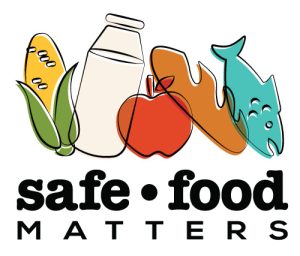Safe Food Matters Goes Back to Court with Health Canada on Glyphosate
On June 13, 2023, Safe Food Matters returns to Federal Court in its ongoing battle with Health Canada over glyphosate, Canada’s most widely used herbicide.
This is the first step in our second lawsuit against Health Canada’s Pest Management Regulatory Agency (PMRA) for re-registering this harmful pesticide. We are seeking documents to show what’s really going on behind closed doors at the PMRA.
Why? Because something’s not right. In February, 2022, the Federal Court of Appeal ordered the PMRA to review our “Notice of Objection” for a second time – and the Court even provided “Guidance” to PMRA on how to address the issues. But PMRA did not follow the Guidance.
Even more, PMRA bent over backward to not address the concerns we raised. PMRA rewrote history. PMRA made up totally new legal tests. PMRA reached for rebuttals without evidence. PMRA defied the rules of procedural fairness. It is clear PMRA does not want a review panel, even though the law allows for it.
So what’s going on?
Theory of Regulatory Capture
Canadian scholars have recently written on the phenomenon of “regulatory capture”. The article, published in Toxics, makes the case that PMRA’s evaluation of glyphosate was deficient, as a result of the “scientific and regulatory captures of relevant Canadian agencies by the pesticide industry”. The effect of the capture is PMRA “promotes commercial interests over the imperatives of public health and environmental protection”.
The authors point out three strategies used in regulatory capture:
- Corporate shaping of the scientific narrative;
- Hiding the risks of a product; and
- Creating a long-lasting and close “intimate” relationship with regulatory agencies.
All three of these strategies are present in PMRA’s evaluation of glyphosate and its treatment of our objections.
- The “Monsanto Papers” formed part of the glyphosate evaluation by PMRA. PMRA itself admits in its glyphosate final decision that it prefers industry studies over published scientific literature.
- The PMRA did not examine the risks of the product, Roundup, but only the “active ingredient” glyphosate, which allowed PMRA to ignore all sorts of science showing the entire product is more dangerous than glyphosate itself.
- Third, there is a close and intimate relationship between PMRA and industry.
We will bring evidence of this close relationship on June 13. Canada’s lobby registry shows extensive contacts between senior PMRA staff and Bayer/Monsanto, as well as their agent CropLife. CropLife annual reports describe in detail their efforts to influence PMRA. LinkedIn profiles show that a significant number of CropLife senior employees were previously employed by Health Canada, CFIA, Agriculture and Agri-Food Canada, among other federal government positions.
Creating False Public Controversies
Other corporate strategies used are “creating false scientific and public controversies” ; and “orchestrating PR-disinformation campaigns”. We’ve seen this in a May 26 opinion piece written by Terence Corcoran for the Financial Post, which is being spread by Yahoo and the Genetic Literacy Project (GLP), a pro-industry organization. (This is the same Terence Corcoran who on April 23 argued that the threat of Canada being hit with “more serious and frequent wildfires” was alarmist.)
The pieces contain many falsehoods:
- They say in Canada we are leading a “well funded effort involving millions of dollars over several years of legal proceedings”;
- The say our goal is to “force a radical transformation of Health Canada’s regulatory regime from a government-controlled science operation into a new system that would transfer pesticide oversight to an outside panel”; and
- The GLP says we are using “tort” law to effect all these radical changes.
These claims would be laughable, except many Canadians read such disinformation, and glyphosate is a serious issue.
- First, the legal effort of “millions of dollars” has to date been supported by crowd funding, a few individual donations of $10,000 or less, and thousands of hours of free legal time.
- Second, the goal is to have Health Canada follow the law, not create a new system. Section 35 of the Pest Control Products Act is clear that after receiving a notice of objection, the Minister may establish a panel to review PMRA’s evaluation. It’s just that PMRA has never recommended such a review panel, and apparently doesn’t want to.
- Third, this is a legal claim for judicial review of a regulator’s decision, not a civil tort claim. These are completely different areas of law.
The Motion and Ways to Support SFM
Our June 13 motion seeks to expand the Court record to include more information to show what’s going on between industry and PMRA.
Watch the Hearing: We would appreciate your support by watching the virtual hearing. It starts at 9:30 am PST, 12:30 EST and is scheduled for the full day. Go to this link for the calendar of hearings for June 13:, and scroll down to the Ottawa hearing for the case, and select the icon “register for the hearing” which looks like a pen on paper. Our case is Safe Food Matters Inc. v. The Attorney General of Canada and Minister of Health Docket T-2292-22. Our counsel is Jason Gratl.
The filings for the Motion will be on our website, under Filings for case T-2292-22.
Funding Support: Please also consider a charitable donation to Safe Food Matters to help fund our effort on this and other cases. We work to hold PMRA to account on its evaluations of pesticides and other food inputs, and this is an ongoing endeavour. We can’t do it without you (despite claims that we have millions of dollars 😊). You can donate here at Canada Helps. Thank you!


